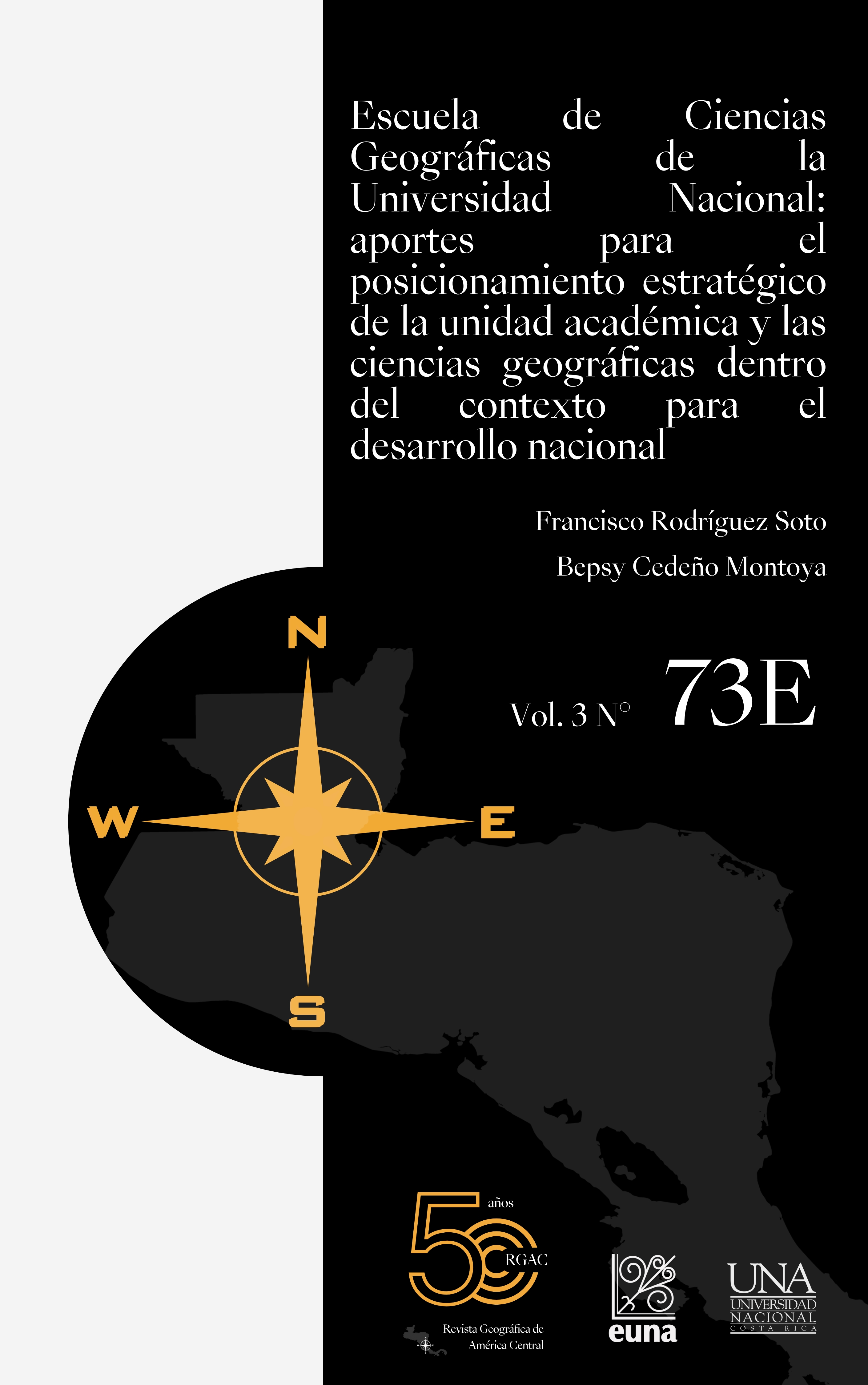School of Geographic Sciences of the National University: contributions to the strategic positioning of the academic unit and the geographic sciences within the context of national development
DOI:
https://doi.org/10.15359/Keywords:
Geografía, pensamiento y conocimientoAbstract
From the new perspectives required by geography, the School of Geographic Sciences (ECG) has positioned a strategy of influence with greater presence in various fields. The academic approach is fundamental for positioning and creating reflective spaces in innovation, generation, and transmission of new knowledge. This approach is necessary and present within the public university with a humanistic perspective. However, it is essential to consider the professional dimension of geography as part of the university’s commitment to society. In this university extension effort beyond the National University, the ECG proposes medium- and long-term actions aimed at impacting national development and contributing to the professional and labor fields of its graduates.
References
Aguilar, O. (2023). Cartas y oficios. Fundación de la Escuela de Geografía UNA. Costa Rica.
Ministerio de Educación Pública. (2016). Programas de Estudios Sociales. MEP. https://mep.go.cr/programas-estudio?texto-programas-academicos=&academico=8162
Núñez, B. (1974). Hacia la Universidad Necesaria. Universidad Nacional. Costa Rica. https://documentos.una.ac.cr/bitstream/handle/unadocs/5972/hacia%20la%20Universidad%20Necesaria.pdf?
TEUNA. (2023). Programa de trabajo Periodo 2023-2028, Elección de Dirección y Subdirección, Escuela de Ciencias Geográficas, Facultad de Ciencias de la Tierra y el Mar. Universidad Nacional. Costa Rica.

Published
How to Cite
Issue
Section
License
Copyright (c) 2024 Francisco Rodríguez Soto, Bepsy Cedeño Montoya

This work is licensed under a Creative Commons Attribution-NonCommercial-ShareAlike 4.0 International License.
Proposed policy for journals offering Open Access
Authors publishing their works in the Journal acknowledge and agree to the following terms:
a) Authors retain the copyrights to their works and guarantee the Journal the right to be the first to publish their works, under the Creative Commons License Attribution-NonCommercial-ShareAlike 4.0 International, CC BY-NC-SA 4.0 International (https://creativecommons.org/licenses/by-nc-sa/4.0/deed.es), which allows others to share works upon complying with the acknowledgment of authorship and mention of the Journal as the original publisher of the work.
b) Authors are permitted to separately establish additional agreements for the non-exclusive distribution of the official edition of the work published in the Journal (for example, authors may desire to place the work in an institutional repository or incorporate it into a book that is to published elsewhere) so long they acknowledgment to recognize the Journal as the original publisher. The aforementioned additional agreements must respect the terms of the non-profit character and sharing philosophy of the original license (CC BY-NC-SA 4.0 International, https://creativecommons.org/licenses/by-nc-sa/4.0/deed.es).
c) Authors are encouraged to archive the post-print or editor/PDF version in Open Access repositories.





 REVGEO is licensed under https://creativecommons.org/licenses/by-nc-sa/4.0/deed.es
REVGEO is licensed under https://creativecommons.org/licenses/by-nc-sa/4.0/deed.es
.svg_4.png)

_(1).png)
_(1)_(1)_(1)_1.png)
(2)(1)(1)(1).png)
